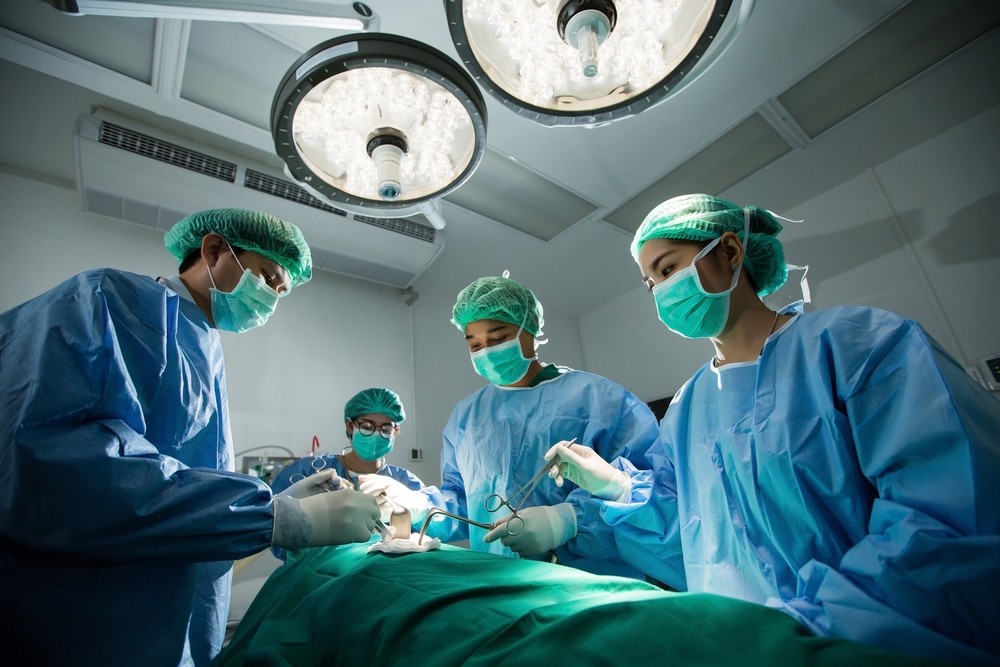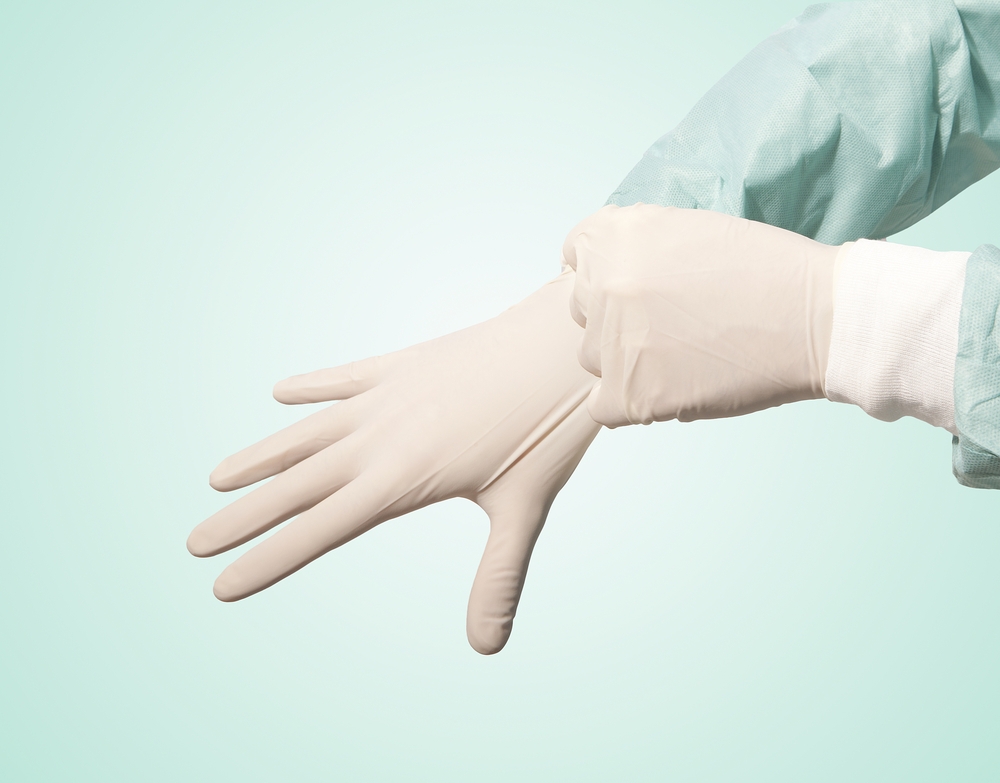
I am a neurosurgeon resident, and this is my last year of training.
I scanned the CT film in front of me, and the diagnosis was obvious: the lungs were full of countless tumors, the spine was deformed, and an entire lung lobe was eroded. This is cancer, and it has spread very much.
Over the past six years, I have seen dozens of such films. But this one is different: the patient is myself.
I watched the film with my wife Lucy. She is a physician and is now by my side. Lucy said she loves me, and I answered her… [I don’t want to die.]
A chapter of life seems to have ended here. I am no longer a priest or shepherd, and can assist in the transition of life and death. I found myself the sheep that was at a loss, at a loss and needed to be tempered. Major diseases are not to change your life, but to shatter your life.
My lung cancer was diagnosed. I had so many plans in my life and was so close to the peak of my career. Now I am exhausted and seriously ill, and my imaginary future and personal identity have collapsed. Facing the dilemma of [existence] faced by my patients.

The following week, I was bedridden. The cancer was getting worse and I was obviously thinner. When I stumbled out of the hospital, I really couldn’t imagine in my heart. Only six days ago, I had been in the operating room for nearly 36 hours. How could I have become so weak in a week?
After the diagnosis, I began to have a world view from two angles: doctors and patients.
As a doctor, I know not to claim what [anti-cancer is a battle, I will win], and don’t ask [why me]. I know very well the relevant medical services, complications and treatment methods. I can also analyze the prognosis according to various data, and draw the conclusion from oncologists and my own research-this is stage IV lung cancer, with high mortality rate, but there are also long-term survival cases.
However, as a patient. I don’t know, In the absence of enough time, whether to have a child or not, or whether to fight for the career and realize the ambition that I have set for many years. Like the patients in the past, I must face the fact that I am about to die and try to find out that what made my life worth living.
Oncologist Emma Mayward reviewed various plans after reading my examination results in detail. Finally, we decided not to take chemotherapy for the time being and took a drug called Trocquer.
Emma and I meet every two weeks, and our discussion has risen from medical issues to more existential topics.
[If you know how much time you have left, it is easier to decide what to do in the future. If there are still two years left, then write. If there are still ten years left, then go back to surgery and do research.] I insisted.
[It’s impossible to say.] She said, [But you must make it clear that what is the most important thing to you.]
Yes, I know. I never tell the patient the specific time, but I have always known very well that the patient should make some what. Otherwise, how can I make those life-and-death decisions?
The English word [Hope] appeared about 1,000 years ago and combined the meaning of confidence and desire. But what I desire now is to live, and what I have confidence is to die. The two are diametrically opposite. So, when I talk about [hope], does it mean [leaving some room for unfounded desire]? No. Medical data will not only show figures such as average survival rate, but also measure our confidence in these data.
When I was a resident, I had talked to countless patients and their families about the cruel prognosis. If this patient is 94 years old, with advanced dementia and severe cerebral hemorrhage, it is easier to talk about it. But for a patient like me, 36 years old, with advanced cancer, I really don’t know how to say what is good.
The reason why doctors do not talk to patients about specific prognosis, Not because they can’t. What patients are looking for is not scientific knowledge that doctors don’t say, but a sense of safety and truth that they have to acquire on their own. Talking too deeply about data is like feeding too salty water to a thirsty person. The anxiety of facing death is far from being relieved by [probability] of data.

Six weeks after the treatment began, I had another CT scan. There were countless tumors scattered in the lungs before, but now it is very clear. Only a small tumor about one centimeter in the upper lobe of the right lung has been found. I can see that my cervical spine is also beginning to recover.
My cancer has stabilized.
I don’t need crutches to walk now, but the road ahead in life is still like a paralyzed patient, full of uncertainty. I woke up in pain in the morning and didn’t know I should be a what except for breakfast.
I can’t move forward (I can’t hold on)! I thought so silently in my heart. However, a voice immediately objected in my heart, [you will still move forward.]
This sentence from Samuel Beckett came out in due course as early as many years ago when he was an undergraduate.
I got out of bed, stepped forward and repeated the whole sentence over and over again: “I can’t move forward. I will still move forward.”
This morning, I made a decision: I will force myself to return to the operating room. Why? Because I can do it. Because that is me. Because I must learn to live in different ways. Even if I am a dying person, I am still alive until the moment when I really die.
I changed into my familiar blue dress, took a sharp scalpel, cut the dura mater, and my brain was beating gently and glimmering. The huge cerebral veins ran through the top of the temporal lobe, which was primitive and plain. My familiar brain, a ravine [peach], was calling me.
All doctors save lives, while neurosurgeons suffer between saving patients’ lives and keeping their personalities. For patients and their families, the problem is not only survival or death, but also how’s life is worth living.
Are you willing to exchange your ability to speak for a few more months of life and spend the rest of your life in obscurity? Are you willing to risk losing your eyesight to rule out even the slightest possibility of fatal cerebral hemorrhage? Would you like your right hand to lose its mobility to stop convulsions? Because the brain controls our perception and experience of the world, any neurological problems force patients and their families to think: Is it what that gives life meaning and is worth living?

In the next few weeks, my strength continued to pick up, and the fluency and skill of the operation gradually returned to the peak. The hands are familiar with again, and they can manipulate and adjust which blood vessels are only a few microns without causing any harm. My fingers regained their former flexibility. A month later, I was almost full-time in surgery. Lucy also returned to full-time work and was pregnant. The baby was due in June, just when I would end my hospitalization.
In February, I flew to Wisconsin for a job interview. All their conditions were just right. After dinner, The supervisor drove me back to the hotel. He stopped at the side of the road and [showed you something.] He said. We got off the bus and stood at the gate of the hospital, with the frozen lake in front and the stars of lights in the department office on the other side. [In summer, you can swim or sail to work. In winter, you can ski and skate.]
This is really fantastic.
It was at that time that I suddenly realized: this is just a dream. We can’t move to Wisconsin. What if my cancer recurs seriously in the past two years? Lucy had to stay alone, away from her friends and family, and take care of her ailing husband and newborn children by herself?
I was almost furious and resisted the desire to accept the job. Also aware that, Cancer has completely overturned my life plan. Cancer is like the big pliers of crabs. Hold me tight and stop me from moving forward. The curse of cancer is a strange and tense existence, and it is also a great challenge to me. I can neither ignore nor let death approach me. Even if death is dormant now, his shadow is always hanging over me… … …
I remembered Emma’s words again: You must understand that what is the most important thing you value.

In the seventh month of returning to surgery, a new tumor appeared, a little big, filling the middle lobe of my right lung. At this time, I was neither angry nor afraid. It was the case. This is a fact in the world.
This treatment is definitely more difficult and painful, and the possibility of living longer is even more slim. Maybe I will not be able to return to neurosurgery in the next few weeks, months or even forever.
Once again, I was on the track from doctor to patient, from actor to passive, from subject to direct object. At the beginning of chemotherapy, my body had a reaction, very strong fatigue, deep into the bone marrow, and general weakness. Later, because some minor complications came and went in and out of the hospital, it ruled out any possibility of returning to work.
After a while, I’m qualified to graduate from neurosurgery. On that day, I stood in the bedroom, Dressing for the graduation ceremony was, after all, the climax of my seven-year hospitalization. But all of a sudden, a strong feeling of nausea hit me angrily. I began to vomit green bile continuously. The chalk-like smell was very different from stomach acid, which was pouring up from the depths of my internal organs. I was sent to the emergency center. My body was in severe pain and my consciousness was erratic.
Facts have proved that the first stage of treatment (Trocquer) failed. The second stage of treatment (chemotherapy) almost killed me. If I can still receive the third stage of treatment alive, there is still some hope.
Emma talked to me about the course of the future. I leaned my head against the wall because the flesh around my neck was too loose to support. My mind was in a mess, like falling into clouds. I needed her to divine for me again and learn the secrets of life.
“You have at least five years to live,” she said.
At last she said it, but in a tone of no [oracle] authority, no confidence at all. On the contrary, it was like a plea. At this moment, she is not a doctor, but an ordinary person, and cannot resist the power and fate that really control these things.
We are face to face. One is a doctor and the other is a patient. Sometimes our relationship is the former’s absolute authority and control over the latter. Sometimes, as now, it is just two people who gather together to comfort each other, and one of them is facing the abyss of death.
It turns out that doctors also need hope.

On the way home from seeing Emma, Lucy’s mother called and said that Lucy was going to have a baby. For the next two hours, I watched Lucy and the nurse go through the process of giving birth together. Looking at her undulating pregnant belly, I thought that there would be many deficiencies in Lucy and her daughter’s life. If I can only be with her now, then I will try my best to be with her.
Facing the boundaries of life, everyone will give in. Most dreams and aspirations are either realized or abandoned. In any case, they belong to the past.
However, there is one little thing that has a certain future: our daughter.
She and I have only a brief intersection. I have only one thing to tell her: You have filled the rest of a dying person’s life with joy. I don’t expect such joy to be endless, but I feel peace, joy and satisfaction. This is the most important thing in my life at this moment, this moment.
